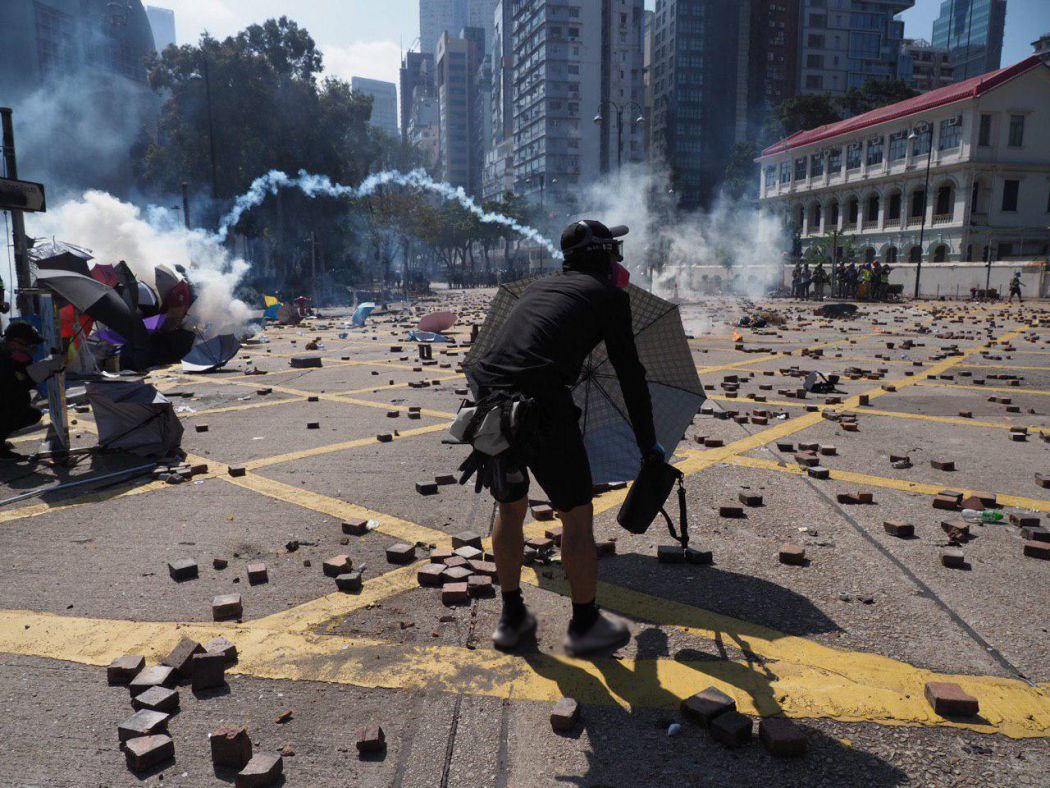On December 7, the Hong Kong government put out a press statement with the laughable headline: “HKSAR Government attaches importance to protecting people’s rights and freedoms,” it read.
Within the body of the piece is the following statement: “In view of the social controversies and disputes as well as other problems brought…. the HKSAR Government has learned its lesson and will humbly listen to and accept criticism. We hope that all sectors of the community could work together with the government to restore order in society…. so that Hong Kong can continue to move forward.”

Despite this seemingly sincere apology that gives the impression the government is ready to compromise, we must remember authorities have agreed to listen before, at times, also “humbly”: in July, August, September, October, and November this year, without ever changing their policy of not giving in.
But for the sake of conversation, I was interested in exploring the possible actions that could be taken to end the deadlock between the public and the government.
Since June, one of the five demands made by Hong Kong protesters has been for the government to establish an independent commission of inquiry to look into police handling of the protests since June. Chief Executive Carrie Lam has repeatedly refused this, implying that she would back the police under all circumstances.
In the meantime, police and protesters relationship has deteriorated with tactics escalating, culminating in a days-long siege on the Hong Kong Polytechnic University that saw exchanges of incessant tear gas and petrol bombs.
Many have long accused the government of turning the city into a police state. These critics have included prominent Hong Kong activist Joshua Wong, American senators Ted Cruz of Texas and Josh Hawley of Missouri, plus countless social media users who have created their own hashtag #HKpolicestate to accompany images of police actions including searches and beatings.

Unsure of what defined a police state, I researched the answer. It seems there isn’t an agreed checklist or a threshold upon which a territory becomes a police state. The general agreement is that it is a place in which its government relies on the police to rule, rather than exercising its power through legal and political means – instead, using law enforcement, or secret police to stifle the opposition’s opinions and actions.
Refusing to approve planned peaceful protests, or tear-gassing demonstrations during sanctioned gatherings, ignoring acts of police brutality – as the Hong Kong government and police top brass have done – are undoubtedly indicative of a police state.
In a secretly taped recording of a closed-door meeting with business people, published by Reuters, Lam admitted that “all she has is the police” and, in fact, her government was “the weakest link.” In this confession, abdicating responsibility to govern and admitting that she relies on the police to maintain legitimacy is a policy that unquestionably contributes to, or indeed makes Hong Kong a police state.
In fact, police have taken on the role many militaries have historically filled in dictatorships across the world. As author Gerry Spence wrote in his book “Police State“: “… when the police become the military, then the people become the enemy.”

So if Hong Kong has indeed become a police state, or is teetering on the brink of becoming one, how does it backtrack into becoming one governed by a legitimate power again?
The usual process for a former communist country, colony or dictatorship to transform into a democracy, involves legitimate free elections, followed by an end to military rule and the rebuilding of civil society and legal systems. It tends to be a messy and slow process which sometimes moves backwards as it moves forward.
One example of such a country was South Africa where, under Nelson Mandela, the government took a proactive approach by creating the “Truth and Reconciliation Commission.” Its mandate was not to prosecute individuals but to foster fact-finding and community participation from both victims and perpetrators. This included discussion about reparations and granting amnesty to those who applied for it.
The independent tribunal that Hong Kong people have been demanding could be set up in a similar fashion. It would allow those who have suffered from police brutality a platform to speak, officers who have perpetrated violence to admit wrongdoing and for the inner workings of policy-making processes to be exposed.

Rolled into this process would be another one of the protesters’ core demands: amnesty for those arrested – a number which has ballooned to over 6,000.
However, what needs to accompany this concession is amnesty for the police as well. This would include amnesty those who have used excessive force during arrests, or for more specific events such as the storming of the Prince Edward station on August 31, and alleged abusers of detainees in San Uk Ling detention centre – allegations which NGO Amnesty International has written a report about.
This, to be honest, might be a compromise that pleases no one, but one that will allow Lam’s government to “lok toi” – resign- while saving face. Not prosecuting their own side could be the only way to make the police brass agree to an independent commission of inquiry. Without the blessing of the police, Lam will continue to refuse one.
As old and tired as the saying is, for Hong Kong to move forward, the government is going to have to give way on the five demands. It is possible to make the first step, but in order to do that, we have to create room and solutions for everyone to manoeuvre. One way – like it or not – would be to grant amnesty for all.
